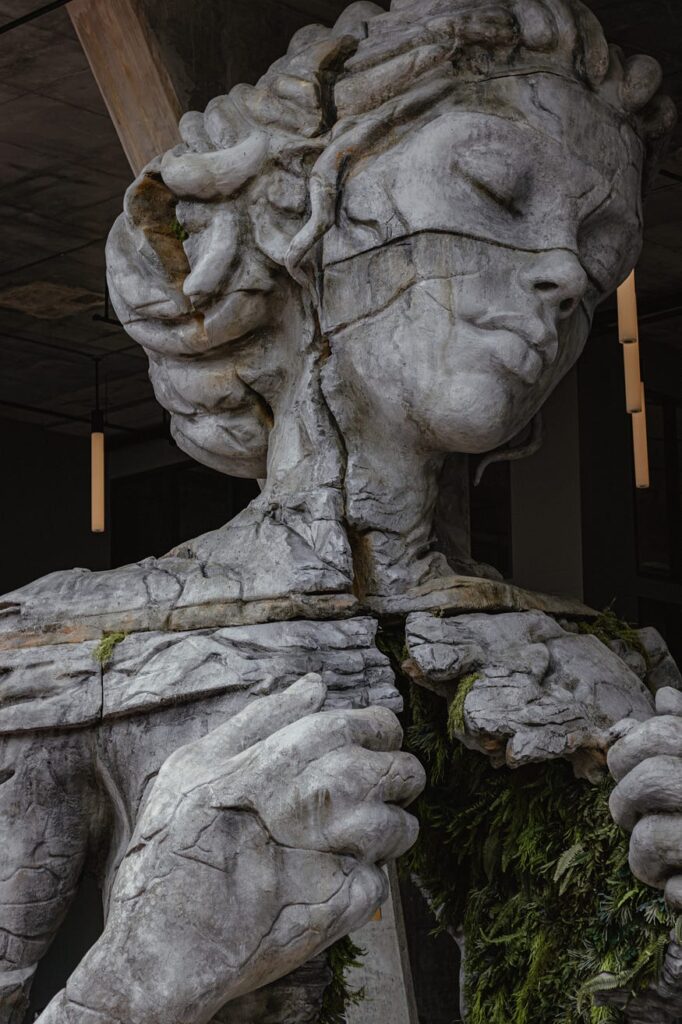A Hypocritical Stoic
How do we respond when we have lost our way

Much of what made Stoicism such an attractive prospect to the eighteen-year-old version of myself was the certainty that its practice offered to me. To face life’s perils and be able to quickly decipher whether an issue was worth sleepless nights and that burning anxiety that a teenager so often experiences in the face of an admittedly minor problem.
Or if I continued to do right, live virtuously, and ensure that the impact I had on others was a positive one, then I could sleep easy knowing that no matter what the next day would bring I remained a good person. However, progress is rarely if ever a linear process, even more so when we allow our own inconsistencies and faults of character to stand in the way of what makes us the next generation of Stoics.
To those who have read my works in the past and found even an inkling of inspiration or strength in my words, I am sorry that I allowed my own inconsistency of practice to prevent me from continuing that active role over the past few years. Yet I feel a lesson can be learned and shared with you all from how I have lost my way in the preceding period.
Only by exhibiting actions in harmony with the sound words which he has received will anyone be helped by philosophy. — Musonius Rufus
While I have never claimed to be Marcus Aurelius reincarnate, I have offered advice in the past, and on the days in which I felt like a less-than-ideal advocate of the Stoic ideal, this led to me feeling like a hypocrite for doing so. This cyclical manner in which I would cease my practice of the core Stoic teachings would be compounded by my previous publicizing of how it altered my life.
Yet each time I lost my way I would find a way to reinvent myself, in each instance leaning heavily upon the wisdom of the ancients to do so. For in the end, I realized, that despite intent, despite the impact we have on others, and despite how far we have come, we are all hypocrites. By embracing this I think we can truly understand what it means to be a modern-day Stoic.

Preparing for adversity
It is at the point in which we feel most confident in our Stoic practices and beliefs, that we are most likely to begin to neglect them. Stoicism has often been defined as a philosophy for those in their darkest hours. We can see this in the founder of the Stoa itself Xeno of Citium, who began his journey towards becoming a Stoic sage as he saw his life sinking to the bottom of the ocean before him. Epictetus in his endurance of slavery, Marcus Aurelius in ensuring he could bear the weight of the Roman Empire upon his shoulders in a manner befitting, Nelson Mandela during his imprisonment, Viktor Frankl through the concentration camps, and the examples continue ad infinitum.
Yet it is hardly that simple is it? That we turn to the Meditations, the Enchiridion, or Letters to a Stoic, only when the night is at its darkest and the very stars themselves have been snuffed out leaving us alone to face what is yet to come.
To ensure that when such a time comes we are ready, we must return to the point at which we feel the practices of the Stoics are unneeded. Times of prosperity and joy when everything seems to be finally coming together and there are no storms on the horizon. Philosophy like athletic practice requires consistency. To grow a muscle we must repeat the same motions over and over again.
Man conquers the world by conquering himself. — Zeno
When our situation seems most desperate we will be truly glad that we ingrained this repetitive motion of Stoic practice into our routine, during the days it truly seemed unnecessary. We practiced premeditatio meliorem, braving adversity, separating what is within and what lies beyond our control, and much more.
Preparing for our lowest moments when we are prosperous, happy, and certain of the course ahead, will mean that the day when this is inevitably challenged and overturned will be less severe and jarring.

A Hypocrite’s Homily
This is not the point of the article you are now reading, however ……
Since I started my journey with Stoicism and began implementing its tenets into my life, I have oftentimes failed to make use of the very advice I presented to you above. Hence my somewhat self-aware self-imposed title of a hypocrite.
At various stages in my life as I believed my adversity had given way to blue skies and unimpeded happiness, I faltered.
I allowed myself to neglect my practice, neglect the very elements of the philosophy that have brought me this far, and also to neglect my writing. Now you may be wondering where I am going with this, I often wonder the same thing at the halfway point of my pieces but if you bear with me I promise there is a point to my ramblings.
The issue I so often have had with my journey and tackling this imposter syndrome of sorts is the examples that have been provided to us. Marcus Aurelius the last good emperor, Epictetus the unrelenting paragon of virtue and Viktor Frankl the man who survived the holocaust with his humanity not only intact but enhanced among so many others. Who would not feel like a hypocrite standing upon the imperious shoulders of such titans?

While it is vital that we aspire to be like the paragons of virtue who have come before us, I have to be honest with myself and acknowledge that if I lived until the final day of this world I will never be the next coming of Marcus Aurelius.
This can be viewed in a manner that is truly disheartening, that we will always fall short of the attainment of ultimate virtue, despite our unceasing efforts and hard-won victories. Or it can be observed through another lens which is altogether easier to swallow and live with.
We may never become Stoic sages, yet we can continue to progress and practice what the ancients have handed down to us. We can continually become better people and in doing so make those around us better. We can live lives in which unnecessary worry and woe are discarded while we enjoy the present and never set our sights on what is unnecessary or unattainable for our happiness.
Hypocrite I may be and with the setbacks that have befallen me in the past, this has been laid bare to me. I allowed my own inconsistency to better me and when my darker days arrived, I turned to vice instead of virtue.
Yet here I am still standing, still willing to better myself and reforge myself in the Stoic mold, no matter how difficult that may be. That is because no matter how far I stray I know that there is always a way back, even if the next step forward seems uncertain and we may falter in making it. Each time I fail and fall, I will eventually find my way back to the version of myself that I have spent years of my life attempting to become and maintain.

Therein lies the beauty which remains at the heart of Stoic practice. Each and every one of us who embarks upon this journey to practice Stoicism and eventually become Stoics, are merely ordinary people who will stray and who will falter.
Yet in straying, in faltering, and even in certain instances being brought to our knees by the sometimes overwhelming weight of the world, we can still find our way back. No matter how long it may take, in putting one foot in front of the other and getting back on track, we provide an example to one another that our failures are neither fatal nor final.
So long as you have courage and a sense of humor, it is never too late to start life afresh — Freeman Dyson
Every day we are given an opportunity to reforge ourselves, to pick up the pieces, and rebuild ourselves using the very practices which have been in use for millennia. To strive to become a Stoic sage for the modern day is an admirable goal, yet I feel that in displaying our human nature and its capability for weakness and inconsistency, yet to continue on regardless is equally if not more inspiring.
The Conclusion (Thank (insert deity of choice here))
So what would my advice be to those of you unfortunate enough to have had to endure my long-winded explanations thus far? Well, it is a real case of doing as I say not as I have done. Can’t really say I have shaken the hypocrite tag throughout this article it seems.
During the good times ensure that you continue your Stoic practice, whether by returning to the texts to refresh your memory or in embracing the more difficult and contemplative of practices.
By building a solid foundation during these periods you will be served well by the inner reservoir of strength that you have continued to add to day by day. Rather than in my own instance where I neglected to do so and am continuously forced to begin rebuilding works on my foundation in a period which is far from ideal for such construction works.
If you are like me and your inconsistency continues to be your Achilles heel when it comes to the practice of Stoicism, I would advise that you not be too disheartened. It is never too late to turn things around, no matter how things may seem at that given moment. We are all of us far more capable than we believe, not only in respect of what we can endure but also in terms of what we can grow beyond.
“Caretake this moment. Immerse yourself in its particulars. Respond to this person, this challenge, this deed. Quit evasions. Stop giving yourself needless trouble. It is time to really live; to fully inhabit the situation you happen to be in now.” — Epictetus
In doing so we not only pave a new way forward for ourselves, but we also provide an example for those going through similar situations. This is why I have written this somewhat humbling piece, in the hopes that it will provide a North star of sorts for those who have likewise lost their way. While I cannot guarantee it, I intend to use this rebuilding period to grow and become a more consistent advocate of the tenets of Stoicism.
To truly learn the strength of our beliefs and practices they must be tested and in this crucible, they are hardened and enforced …… all I am saying is try not to make this test more difficult than is required if it can be avoided.



